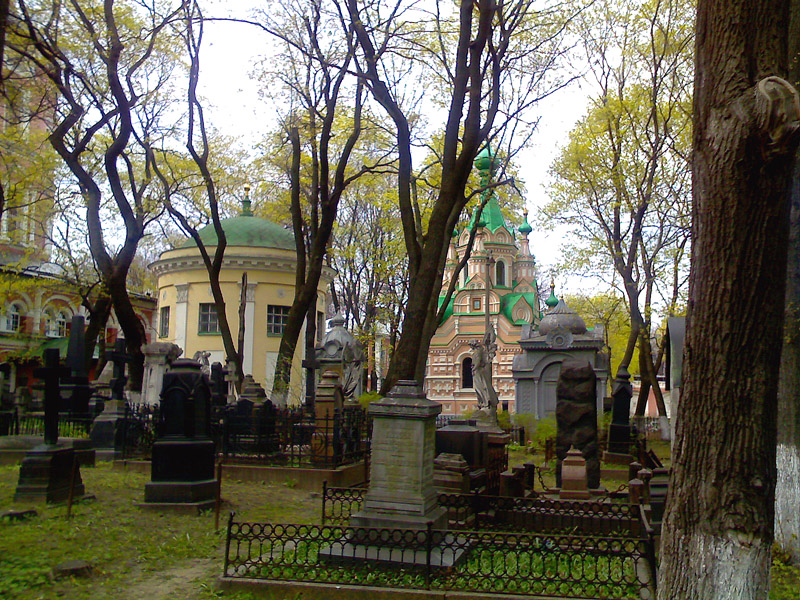I’m sure my experience reading Vasilii (Vasily) Grossman’s Жизнь и судьба (Life and Fate) differs significantly from the experiences of other readers: Life and Fate is so long and complex that I suspect most people, particularly first-time readers, come away with messages that reflect the portions of the book they relate to most.
This 900-page epic about the World War 2 era in the USSR was unpublishable when Grossman attempted to submit it in the early 1960s. It did not reach Soviet readers until perestroika. Life and Fate includes dozens of characters, military and civilian, free and imprisoned, Soviet and German, and Grossman draws dangerous parallels between two oppressive systems. Many characters fight for the city of Stalingrad. Others are physicists. Others are held in the Lubyanka prison or German concentration camps.
Sometimes Life and Fate felt so sprawling or crowded that I thought Grossman should have written several novels instead of trying to force all his people and ideas into one book. But there is a nucleus: the Jewish physicist Viktor Shtrum, who struggles with “spiritual entropy” as Soviet science and society become increasingly politicized. Viktor and his wife Liudmila connect, with various degrees of separation, to most of the novel’s other characters through family ties.
Although I wish my Russian edition of the novel had contained a list of characters and settings, as the English translation evidently provides, I found that relaxing and accepting my commitment to read – and enjoy! – Life and Fate through the Russian Reading Challenge worked at least as well. Rather than obsessing over all the character names and traits, I focused on the people and subplots that interested me most.
There is plenty to choose from. Most passages in Life and Fate describe events in the lives of characters, but Grossman also includes an essay on war. A few chapters lack characters and feel more like journalistic pieces, reflecting Grossman’s background as a war reporter. Grossman’s writing style is generally straightforward and simple, though he occasionally hits what felt to me like off notes with gratuitous references to, for example, Avogadro’s number and certain works of Russian literature.
Life and Fate is often compared with War and Peace, and these long, loose books have obvious formal similarities. But what struck me more was the authors’ common emphasis on individuals: Grossman, for example, focuses on humanity by looking at the individuals who make up the Soviet and German military... and those who become victims of the Soviet GULag and German concentration camps.
This theme leads to the book’s best scenes, some of the most moving I’ve read in years: a letter from a doomed woman to her son (Part 1, chapter 18), an account of being led to death in a gas chamber (Part 2, chapters 45-50), and a scene of encircled German troops at Christmas (Part 3, chapter 36-37). I recommend these scenes highly to all readers, whether or not they read the entire book.
Shtrum’s spiritual entropy and intense loneliness as he struggles with his own moral decisions and fate as a theoretical scientist left an overwhelming impression, too. Observing the effects of fear, acceptance, and relief on his actions was not easy – these sections centering around the egocentric Shtrum were both emotional and a little drawn-out – but I added more depth to my readings of the psychology of professional and personal survival during the Stalin era.
My overall feelings about Life and Fate are mixed: in spite of some beautifully composed scenes and interesting characters, the hundreds of chapters don’t always quite hold together, and some characters inevitably felt a little stereotypical or unnuanced.
Despite its minor imperfections – which are hardly surprising for a novel of the bulk and scope of Life and Fate – Grossman’s descriptions felt so immediate that I often had trouble putting the book down to cook dinner or go to sleep. And I enjoyed considering the many painful ideas the book presented, particularly the politicization of the Soviet military and society, and the accompanying moral dilemmas for people who wanted to be good citizens but think for themselves, even during wartime.
Life and Fate deserves respect, attention, and readers. It addresses questions of freedom, morals, and politics that – as recent news shows – still burn today. If you decide to read Life and Fate, I suggest finding an edition with a list of characters… and then choosing a few people or plot lines to specialize in if the book threatens to overwhelm you. It’s worth the time and the effort, and you may, as I do, feel that you’ll want to read it again some day so you can learn more.
Summary: I highly recommend Life and Fate to readers interested in totalitarianism, the World War 2 era in the Soviet Union, and moral decisions. Although the novel sometimes feels overloaded with places and characters, some of whom flit in and out of the narrative, I appreciate the care with which Grossman describes people and their situations.
For further reading:
Robert Chandlers’s introduction to his translation of Life and Fate
Review of Life and Fate in London Review of Books
“Under Siege,” by Keith Gessen, from The New Yorker
Life and Fate on Wikipedia (includes summaries)
Short stories translated by Andrew Glikin-Guskinsky, winner of the 2007 Pushkin Poetry Prize for Translation, are available on Sovlit.com: “The Resident” “In the Country” “A Tale About Happiness” “In the War”
“In the Main Line of Attack” is anonymously translated nonfiction, by Grossman, about Stalingrad.
Life and Fate on Amazon.com 
(Cross-posted on Russian Reading Challenge.)




